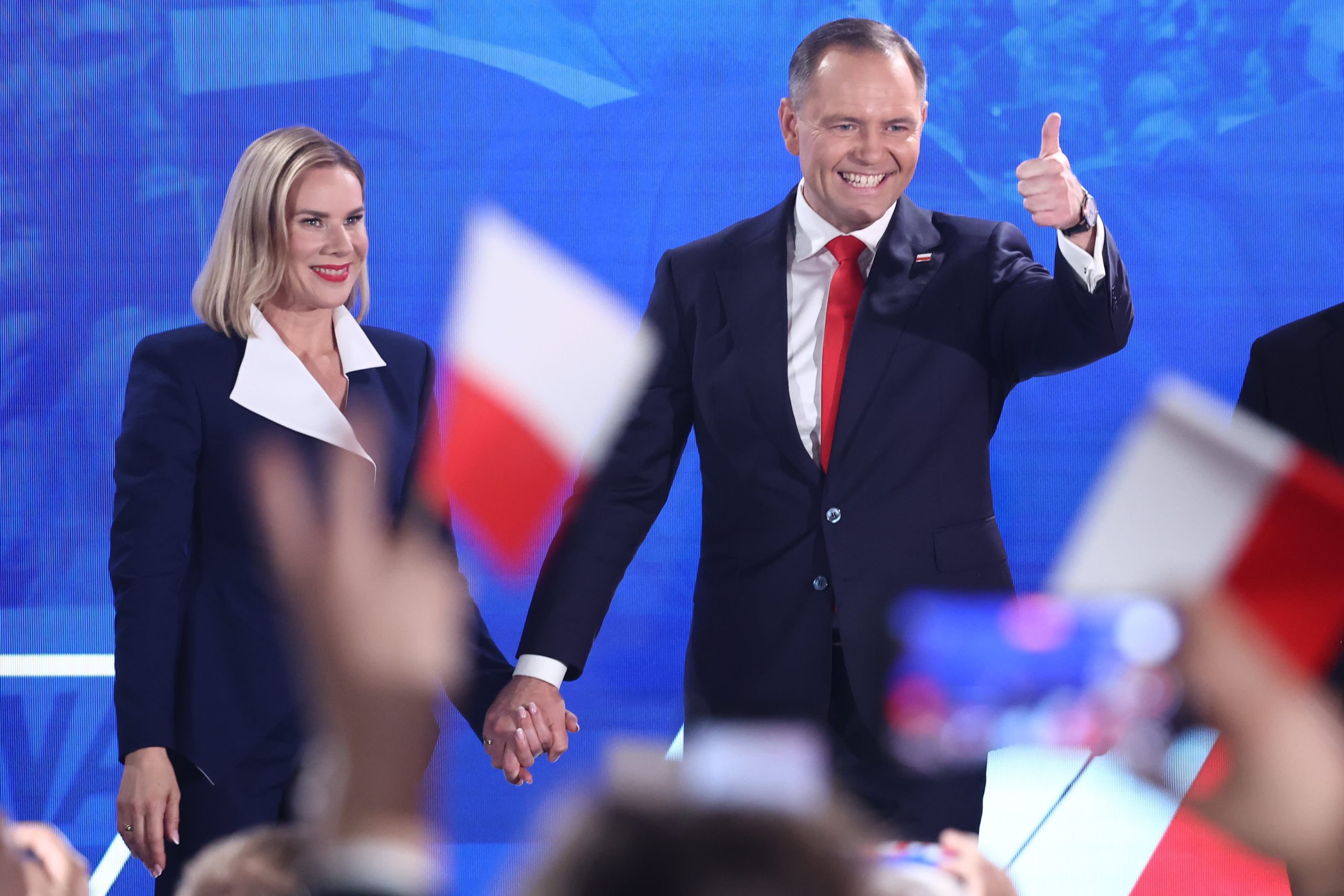Nationalist Karol Nawrocki, backed by U.S. President Donald Trump, clinched the Polish presidency in a tight run-off race that spells trouble for the country’s current pro-EU government.
A final count showed Nawrocki, who stood for the opposition Law and Justice (PiS) party that lost its majority in 2023, secured 50.89% of votes against the 49.11% of rival Warsaw Mayor Rafał Trzaskowski. Early results released before polls closed had put the liberal in the lead.
Nawrocki will succeed fellow conservative Andrzej Duda — who himself won the leadership with a razor-thin advantage against Trzaskowski in 2020 — for a five-year term and can then stand for re-election once.
The Polish election was closely watched in Europe, the United States and battling Eastern European neighbors Russia and Ukraine as it raises questions over the solidity of Warsaw’s future alignment with Brussels and Kyiv.
The head of state’s role in Poland is overshadowed by that of parliament, but the president retains a critical veto over legislation. Duda has exercised this to block several reforms spearheaded by Prime Minister Donald Tusk’s coalition.
Eurosceptic Nawrocki can likewise deliver considerable setbacks to former European Council President Tusk’s pro-EU government, which repaired fractured relations with Brussels and last year unlocked payments of up to 137 billion euros ($156 billion) of EU funds that had been frozen over rule-of-law concerns.
The country of 37 million and the EU’s sixth-largest economy was the largest net beneficiary of EU funds in 2024.
“I’m confident that the EU will continue its very good cooperation with Poland. We are all stronger together in our community of peace, democracy, and values,” EU Commission President Ursula von der Leyen said Monday on the X social media platform. “So let us work to ensure the security and prosperity of our common home.”
A previously staunch supporter of Ukraine in its fight against Russia’s invasion to date, Poland has offered extensive security and logistical aid to Kyiv and earlier in January assumed the rotating one-year EU presidency from the Kremlin’s chief European ally Hungary under the motto “Security, Europe!”
Nawrocki has taken a more critical stance toward Kyiv during his campaign, citing Ukrainian President Volodymyr Zelenskyy’s alleged poor treatment of Poland. He also ruled out the embattled country’s long-held ambition of adhering to NATO — a move feared to pit the military coalition against Russian hostilities.
A test for right-wing populism in Europe
Critically, the Polish presidential runoff was the latest test of the rise of right-wing populism in Europe, rekindled since the U.S. Trump-led MAGA victory in November. Nawrocki’s win broke the streak of more liberal victories achieved in Romania and Portugal in May.
U.S. Homeland Security Secretary Kristi Noem had urged Polish voters to extend their support to Nawrocki during the first-ever Conservative Political Action Conference in Poland last week, decrying his pro-EU opponent Trzaskowski as an “absolute train wreck of a leader.”
“Donald Trump is a strong leader for us, but you have an opportunity to have just as strong of a leader in Karol, if you make him the leader of this country,” she said. “You can be that shining city on a hill that the rest of Europe and the world will watch and know how strong you are, how free you are because you’ve elected the right leader that will protect it and defend it.”
Poland has maintained a good relationship with Washington, particularly on security, where it evades Trump’s broader criticism against — largely European — NATO allies who have historically failed to meet the coalition’s defense spending target of 2% of GDP. Poland has exceeded this benchmark for the past five years, logging a 4.12% contribution in 2024 — ahead of the U.S.’ own 3.38% — and investing in U.S. arsenal ranging from F-35 jets to Abrams tanks.
International: Top News And Analysis
Read the full article <a href="Read More” target=”_blank”>here.


